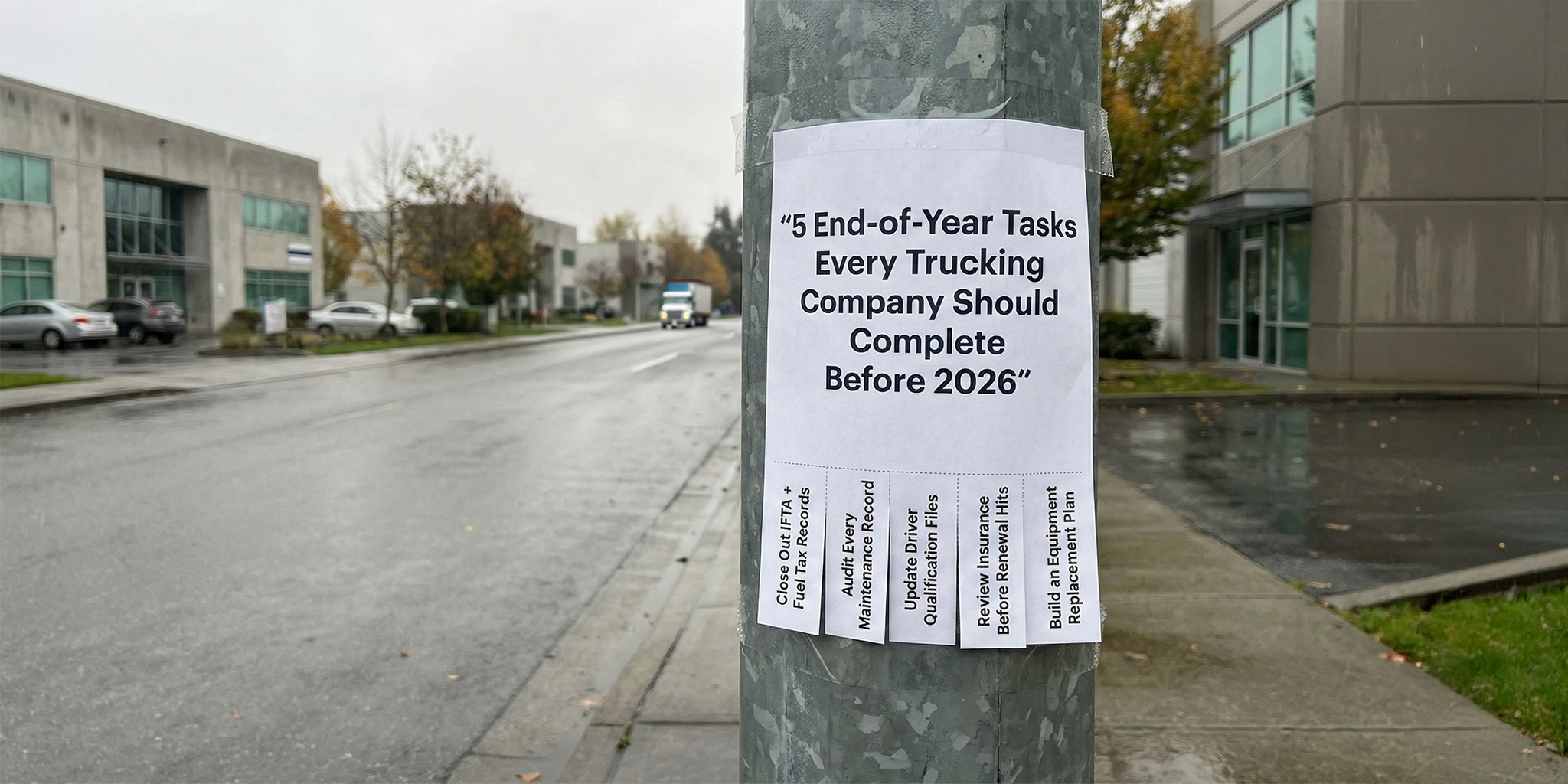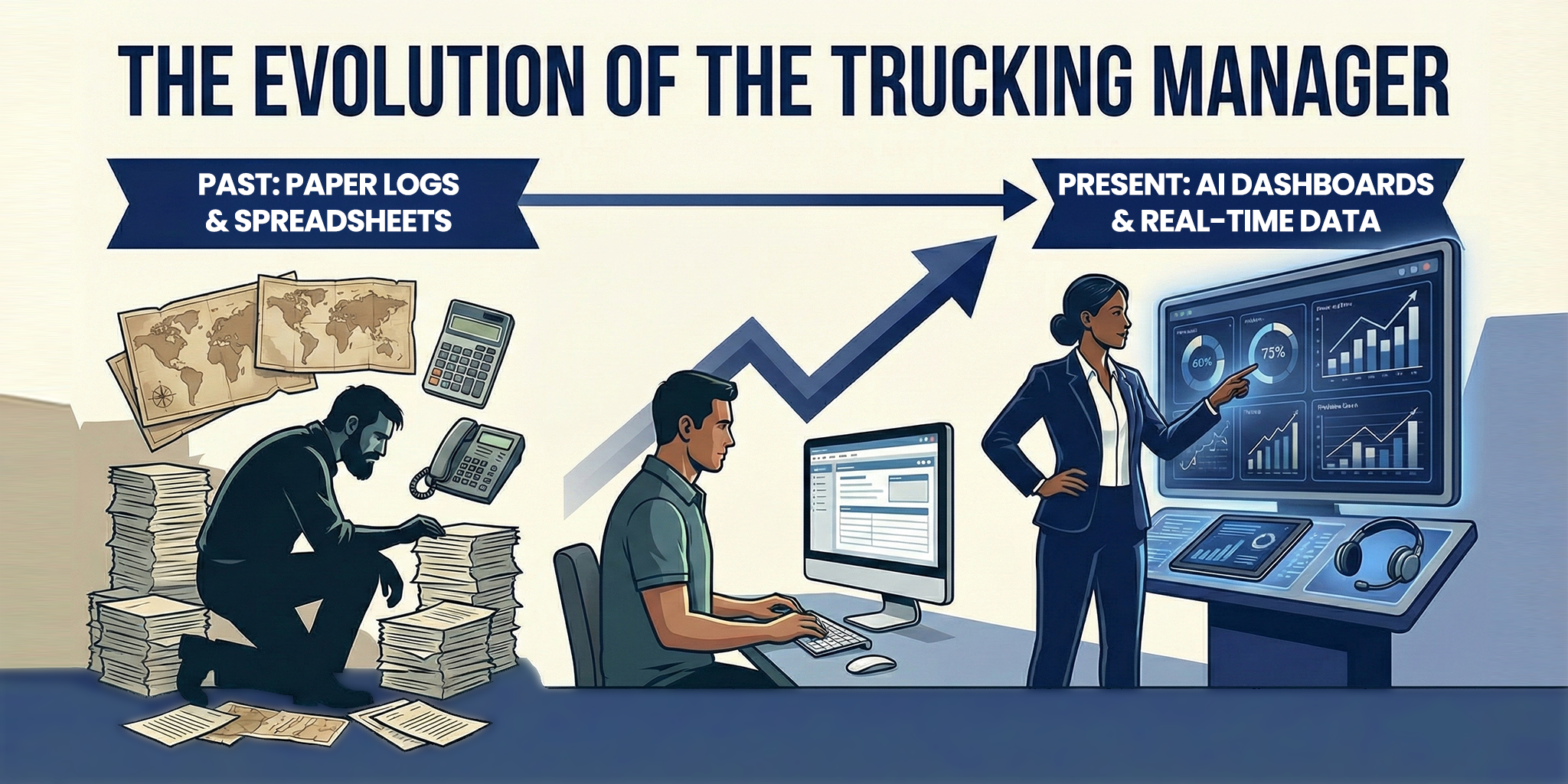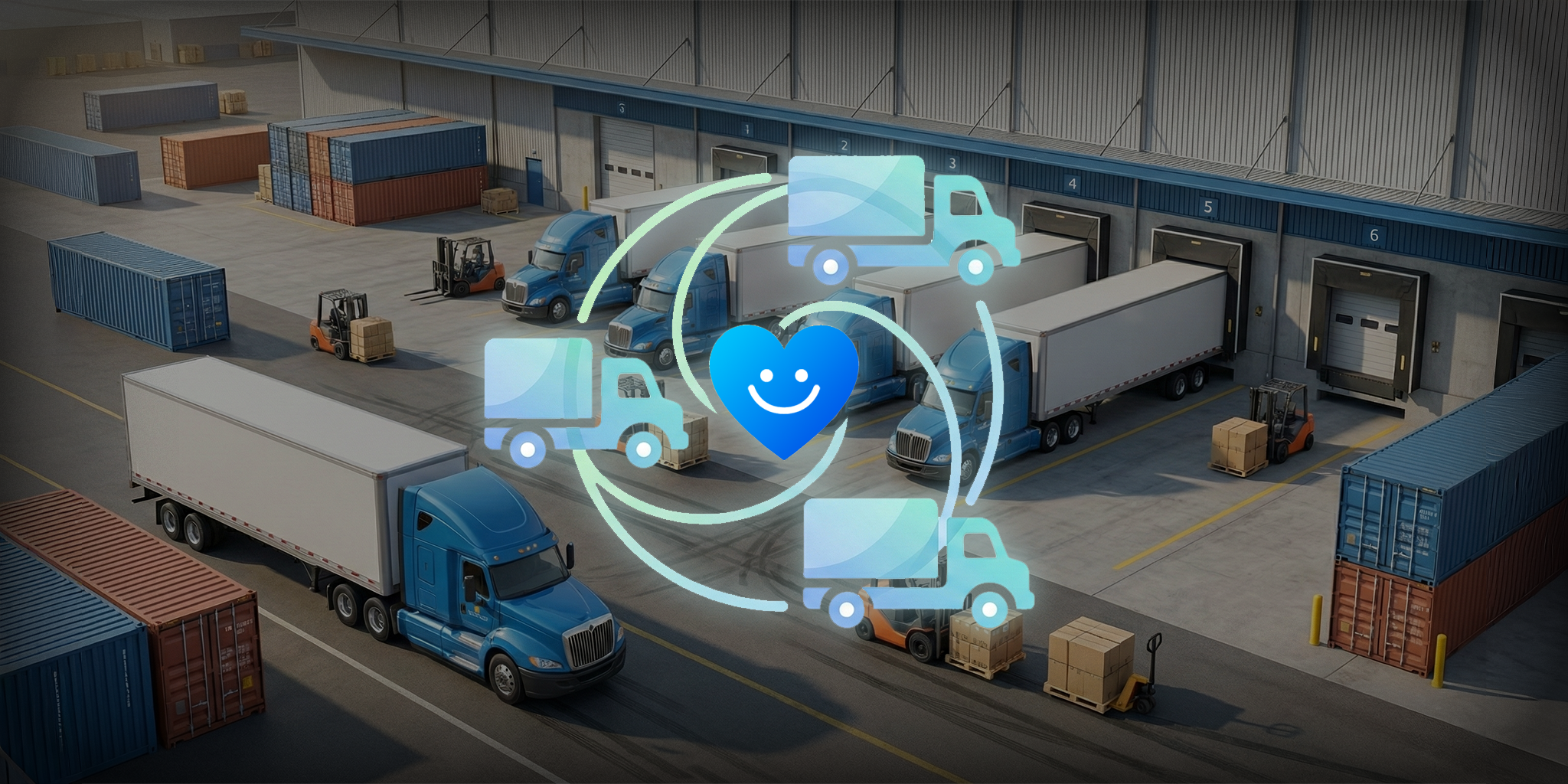Let’s be real, running a trucking business ain’t for the faint of heart. Between dispatching, juggling routes, chasing payments, and dealing with paperwork taller than a stack of tires—you're doing the job of five people. Every. Single. Day.
Whether you’re an owner-operator ridin’ solo or managing a small crew, it’s easy to feel like you’re drowning in the chaos.
If you’ve ever thought, “I’m too small for that kind of software,” think again. A good TMS is designed to help trucking businesses like yours stay organized, save money and run smoother. It's not just for the big guys.

So, What Is A TMS Software?
TMS stands for Transportation Management System but don’t let the name scare you off. Think of it as an all-in-one digital toolbox for running a trucking business without the chaos. It automates a ton of the day-to-day stuff—dispatching, route planning, invoicing and paying drivers—all without needing a mountain of sticky notes or 37 open text threads.
And here's the cool part: you can also track shipments with live location sharing, so you know where your truck (and your precious cargo) are in real time. It also keeps tabs on how your fleet is doing over time, helping you cut costs and catch problems before they snowball. No more surprises when a driver ends up two states off course!
Got dispatchers, accountants, or just your cousin helping out with loads? A TMS makes everyone’s life easier—and saves you from having to answer “Where’s the truck now?” 27 times a day.
Why You Should Care? (Especially If You're Running a Smaller Operation)
Look, we get it. When you’re running a lean operation, every minute and every dollar counts. You don’t have time for fancy tech talk or software that makes things more complicated. But a solid TMS? That’s a whole different story. Here’s why it’s worth your attention:
1. Level The Playing Field
You might not have a full team behind you—but a TMS makes it feel like you do. It gives you the tools the big guys use without needing a big budget. Suddenly, you're not just surviving, you’re competing.
2. Save Time and Money (Yes, Both!)
Tired of chasing down info or guessing if you sent that invoice? A TMS helps you automate the boring stuff so you can spend less time buried in paperwork and more time on the road or growing your fleet. Plus, smart route planning and better load visibility can cut down fuel costs and avoid those expensive "oops" moments.
3. Keep Your Customer Happy (and Coming Back)
You know what shippers love? On-time deliveries and drivers who communicate. A TMS helps you do both. Real-time tracking means you (and your customer) always know where the freight is. Happy customers = repeat business.
4. Stay Organized And Cut The Chaos
Let’s be honest—trucking already throws enough curveballs your way. You don’t need extra chaos from paperwork pile-ups, missed deadlines or last-minute load mix-ups. A TMS keeps you organized, reduces errors, and makes the day run a whole lot smoother.

Key Features That Actually Matter to You
Now, let's talk about what a solid TMS platform actually does for you out there on the front lines:
Dispatch and Planning
Remember those frantic phone calls and scribbled notes trying to figure out who's going where? A TMS can handle all that digitally. You can plan routes, assign drivers to loads, and keep everyone in the loop with real-time updates. No more "Where are you?" calls every five minutes!
Load Management
Keep track of all your freight details—what you're hauling, where it's going, and when it needs to get there. A TMS helps you stay on top of it all, so you don't miss a beat.
Tracking and Visibility
Ever wish you had eyes everywhere? TMS platforms often come with tracking features so you know where your trucks (and your precious cargo) are at all times. This isn’t just good for peace of mind—it’s a lifesaver for keeping customers happy too.
Billing and Invoicing
Say goodbye to mountains of paperwork and guessing games when it comes to getting paid. A TMS can help you generate invoices, track payments, and keep your cash flowing smoothly. That's music to every owner-operator's ears, right?
Reporting and Analytics
Want to know how your business is really doing? A TMS can give you the numbers—how many miles you're clocking, fuel costs, on-time delivery rates, and more. This info helps you make smarter decisions down the road.
Driver Payment & Compliance
Paying your drivers on time (and correctly) is non-negotiable. A TMS helps you manage payroll, handle deductions and stay compliant with DOT rules—no last-minute panic required.
Maintenance
Your rig breaks, your business breaks. A good TMS helps track maintenance schedules, service records and reminders so you can fix things before they break down on the side of the road.
Who's This For? (Probably You)
A TMS can help out a whole bunch of folks in the trucking world:
- Owner-Operators: Even solo cowboys can level up with this.
- Small Fleets: Save your sanity and run smoother.
- Direct Shippers: Need to keep tabs on your loads? Done.
- Brokers & Forwarders: All those moving parts? Organized at last.
- Logistics Teams: Get control over your entire operation, A to Z.

Signs You Might Need a TMS (Like…Now!)
If any of these hit close to home, it might be time to check one out:
- You’re hauling more freight than you can mentally juggle.
- Routes are stretching across state lines (or countries!)
- You’re always behind on paperwork or billing.
- DOT audits give you anxiety sweats.
- Your “system” is a combo of whiteboards, text messages and prayers.
- You’ve got more than five trucks and things are starting to feel like herding cats.

Picking the Right TMS (No, They’re Not All the Same)
Now you may be wondering—who’s the top dog?
Let’s be straight up: there’s no single “best” TMS out there that fits every trucking company like a glove. The truth is, the best TMS for you depends on a few things:
- The size of your operation: A solo owner-operator has different needs than a company with 20 trucks.
- The type of freight you haul: Reefer, flatbed, dry van, hazmat—all have different requirements.
- Your budget: TMS systems can range from free (with limited features) to costing a good chunk of change per month.
- The features you actually need: Are you just looking for basic dispatch and invoicing, or do you need advanced route optimization and real-time tracking?
- How well it integrates with other tools you use: Can it talk to your ELDs, accounting software and load boards?

A Few Popular Picks in the U.S.
- McLeod– This TMS has been around for a while and most commonly used in the industry by larger companies.
- ITS Dispatch– Developed by Truckstop, ITS Dispatch can be used by brokers or carriers to manage compliance, dispatch and other core trucking operations.
- Truckpedia TMS– This is an all-in-one transportation management software that has all the power of AI to automate manual work and replace pen & paper operations and legacy tools and systems. It's used by carriers, brokers, dispatch companies and even shippers to manage core trucking operations and more.
Our advice? Don’t jump at the first name you hear. Do your own research. Look for reviews from similar companies. Most providers offer free demos—take advantage and see what fits your workflow.

Final Thoughts
Trucking is a grind. But with the right tools, it doesn’t have to grind you down. A TMS helps you stay organized, keep your money right, and grow your business without losing your mind (or your weekends).
You don’t need to be a tech expert or run a massive fleet to make this work. Just be open to working smarter.
So if you’re ready to quit drowning in paperwork and finally own your operations, start kicking the tires on a TMS. You might just wonder how you ever ran your biz without it.
Oh—and if you’re curious how a TMS could help you build a 7-figure trucking business— Check this out!


